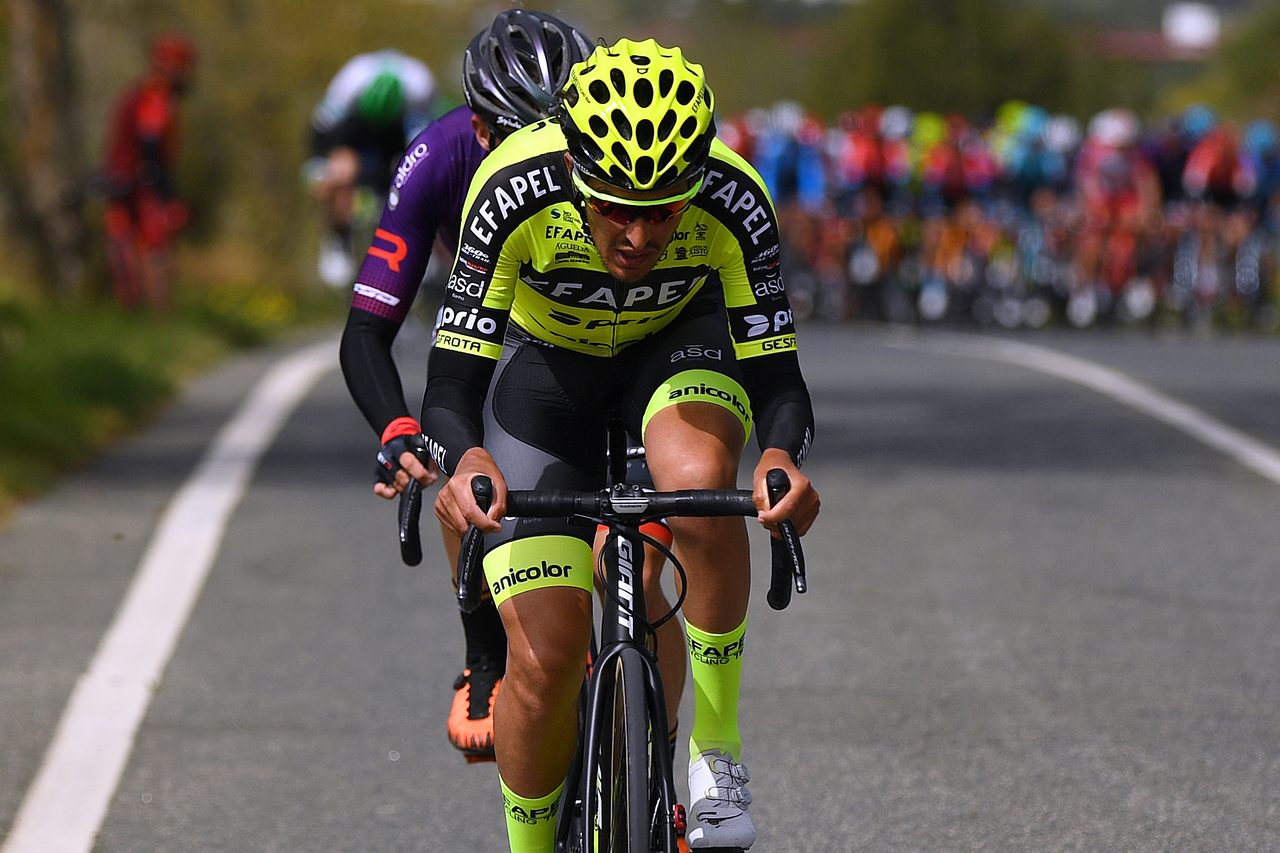
The UCI has provisionally suspended another rider due to unexplained abnormalities in his Athlete Biological Passport (ABP), Portugal's António Carvalho, in 2018, 2023 and 2024.
Ferreira follows on from similar ABP-related suspensions, a week after Spanish Classics specialist Oier Lazkano and less than two months after Italian rider Giovanni Carboni were also suspended.
The 36-year-old Portuguese rider rode for several teams before violating the UCI Anti-Doping Rules, and in the years in question, he raced for W52/FC Porto and ABTF Betão-Feirense, with the latter being the team he raced for in 2025 as Feirense-Beeceler.
Amid continued doping scandals in Portuguese cycling over the past decade, W52/FC Porto had seven riders banned in 2022, and the team were eventually disbanded after their licence was revoked.
Carvalho left the team in 2020, but has now joined the list of anti-doping coming out of Portuguese cycling, which also included a 20-day ban for Continental team APHotels & Resorts-Tavira-SC Farense in October due to"unexplained abnormalities" in the ABPs of two riders.
Having spent the vast majority of his racing career competing in Portugal, Carvalho managed to win three stages of his home Volta a Portugal in 2019, 2020 and 2022, also finishing third on GC on two occasions, in 2022 and 2023.
The ABP, which began in the early 2000s, measures athletes' blood values over time as a way to indirectly detect signs of blood doping. In the years since this rollout, the anti-doping authorities have added other modules to detect the use of anabolic steroids, measuring testosterone ratios, and an endocrine module that can detect signs of the use of Human Growth Hormone.
The UCI, as was the case for Lazkano last week, did not specify which module contained the anomalous values.
Unlike the Basque rider, who protested his innocence via a statement in the Spanish media, neither Carvahlo nor his team from 2025 have yet issued a statement or response to his suspension.







